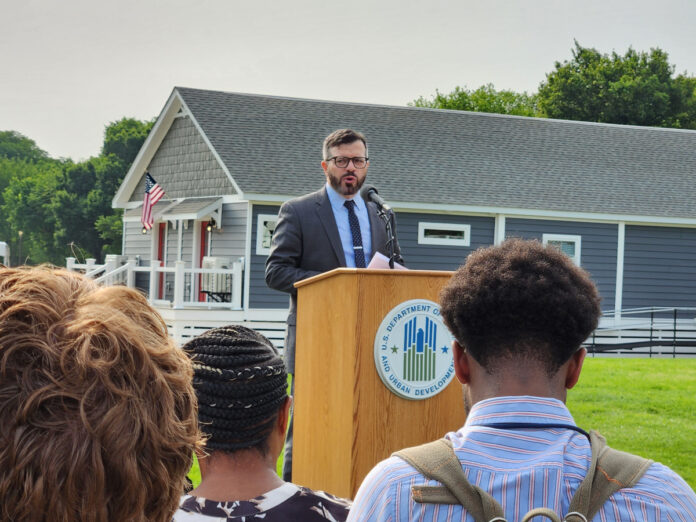In mid-June, the U.S. Department of Housing and Urban Development released a notice of funding opportunity, also known as a NOFO, to build the evidence base to accelerate the adoption of innovative and effective practices and policies that will increase the production and supply of quality affordable housing.
The NOFO provides up to $4 million to…
- assess the potential for off-site construction methods to increase housing supply, lower the cost of construction and/or reduce housing expenses for low- and moderate-income owners and renters,
- and to study how reforms to local zoning and other land-use regulations can increase the supply of quality, affordable housing and expand housing choices and opportunities for low- and moderate-income households.
Proposals Due Aug. 1
Solomon Greene is the principal deputy assistant secretary for policy development and research at HUD.
“In recent decades, housing supply simply has not kept up with demand, which has driven up housing costs and limited affordable housing options for low- and moderate-income families. However, the housing supply shortage has also inspired pro-housing policy reforms at the state and local levels and new attention to alternative construction methods,” Solomon said. “The goal of this research is to better understand which of these reforms and innovations are most effective at producing new affordable housing and what are the conditions for success.”
This notice is the latest in HUD’s effort to support researchers, community residents, practitioners, and policymakers to work together to increase the housing supply.
In June, HUD organized the Innovative Housing Showcase on the National Mall. This event showcased new building technologies and housing solutions, with a particular focus on off-site construction, including manufactured housing. The goal was to explore ways to make housing more innovative, resilient, and affordable for American families. In April, HUD published a Policy & Practice brief that summarized the impacts of restrictive land-use policies on housing supply, location, and affordability. The brief also highlighted reforms that state and local governments can adopt to increase the availability of housing. Also in April, HUD announced a research grant awarded to Cornell University. The grant supports a study on the effects of zoning in the largest cities across the U.S.










